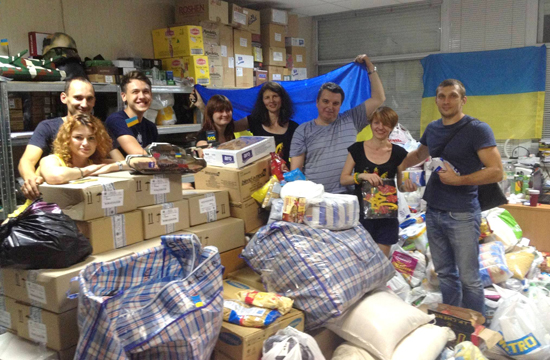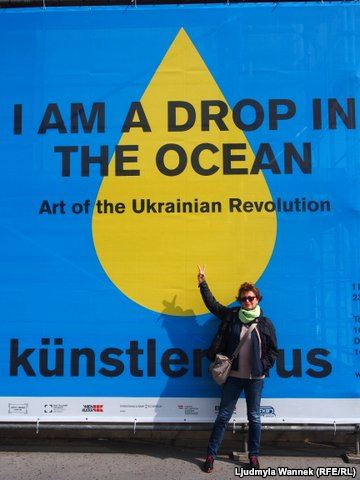
“There was an expression on Euromaidan, ‘I am a drop in the ocean’ – each one of us stepped in to do what was needed and not expecting anything in return. Then, the volunteer movement was born in Ukraine,” said Oleksandra Matviychuk, Euromaidan SOS coordinator at the opening of the awards on 30 November 2016.
The three years that followed were a test for Ukrainian society. Russia’s illegal annexation of Crimea and hybrid war in Donbas directly after the victory of the Euromaidan revolution had many volunteers leave from the barricades of Euromaidan directly to Donbas to fight against Russian-backed separatists. As the Ukrainian state was paralyzed from years of looting and mismanagement, the volunteer soldiers of the early days were funded and prepared for battle almost exclusively by another army of volunteers procuring everything from first aid kits to infrared visors to chocolate.
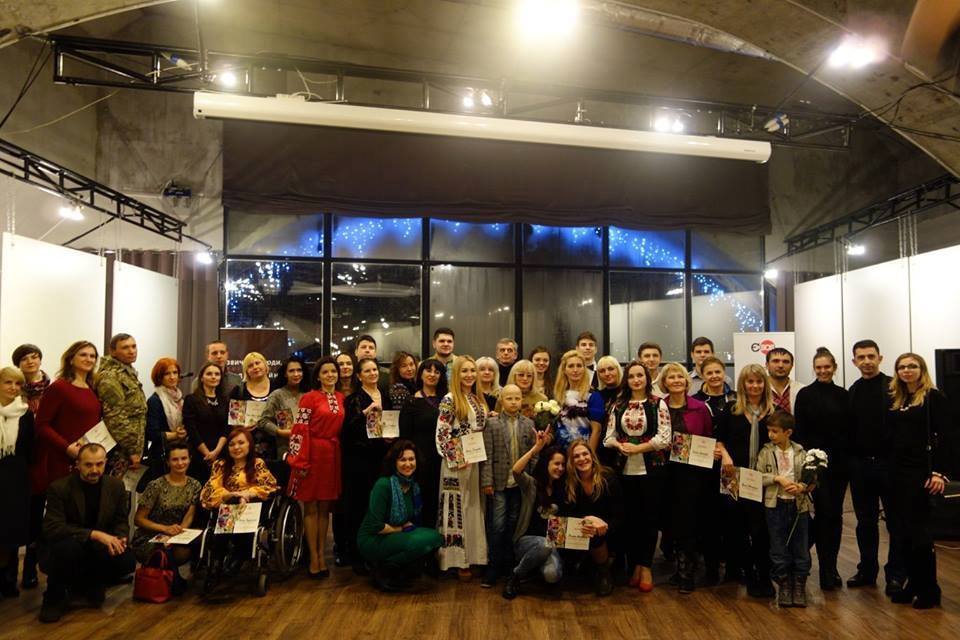
Often, they are invisible and don’t want to take credit for what they do. They also burn out and return to their regular life, which is why there is a feeling that the volunteer movement is waning. But a single “thank you” helps, as does the understanding that your work is needed. That is why the Euromaidan SOS volunteer awards were established – to highlight the volunteer movement and show that volunteers are doing very important work, told Palina Brodik, one of the organizers of the awards.
This year, more than 112 volunteers were nominated, up from 83 nominations in 2015. The jury, which included the winners of last years’ contest chose three, and one was given an Audience Choice Award.
For the strength of spirit
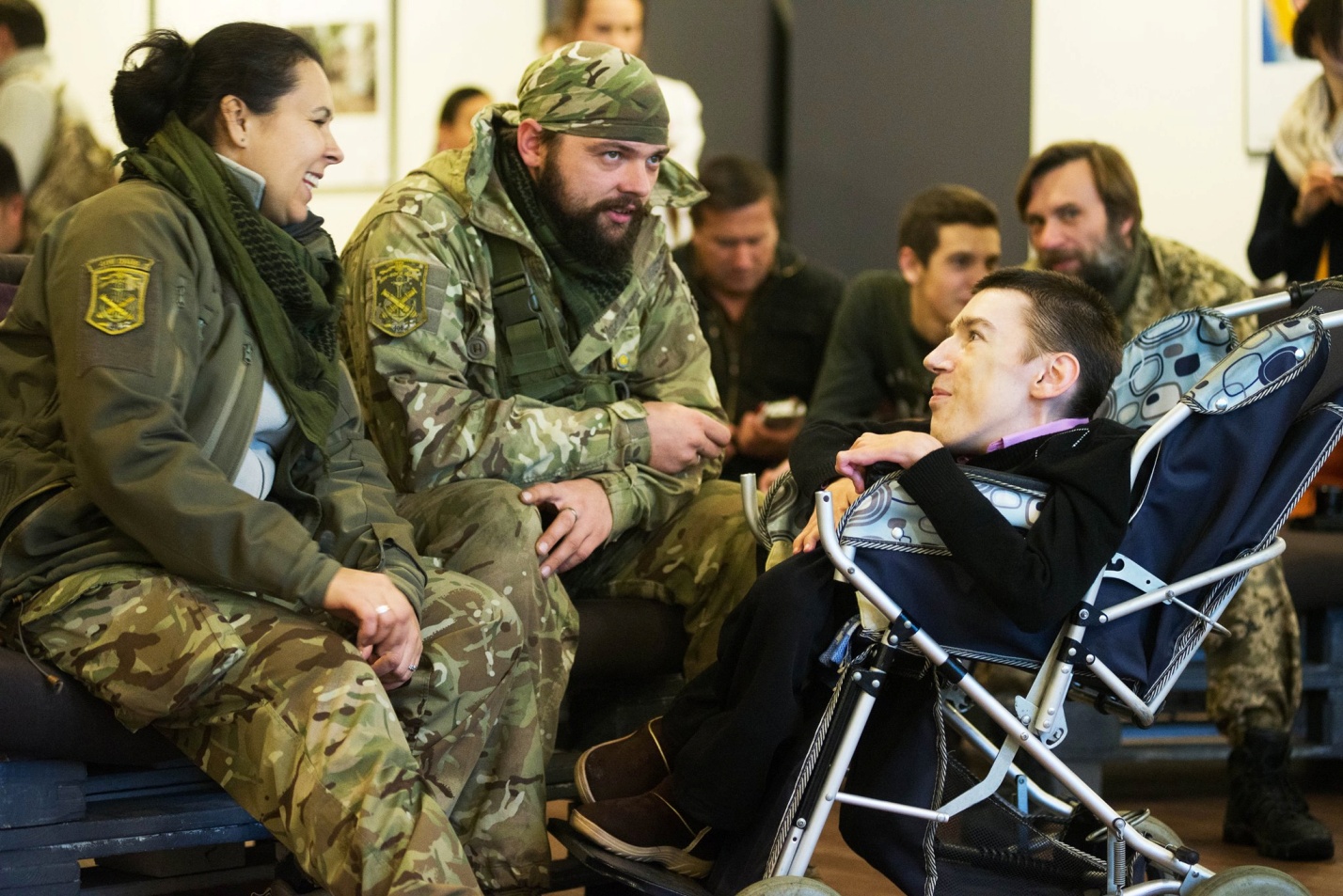
Starting from 2014, Anton Dubishin supports soldiers in the military hospital, inspiring them to fight for their recovery with his example. By making decorative crafts, he sells them and buys the necessary medical supplies for the military hospital. All his life, Anton struggles against a difficult illness which makes movement of almost all muscles difficult for him. But this “peculiarity,” as Anton call his illness, didn’t prevent him from becoming a volunteer. Recently, he organized the event “Invite a defender to chill out,” paying for the billiard and pizza from his own pension. He was worried that the soldiers wouldn’t come, but they did and were impressed by his hospitality.
Together with other people like him, he organized a creative group that earlier gave concerts in schools, and now gives them in military hospitals.
“We decided to call ourselves ‘From the special to the special,’ because they, the military people, are special people that went to war, defending not the people in power, but the people and their homeland. And we are special boys and girls: despite our physical capabilities, we show that life is a cool thing,” Anton said.
For him, this is a personal statement. In 2008, five men told him in a grocery store that such people as him should be kept at home.
“I asked myself: why does society despise me? I am not an invalid, a cripple; I am a person just like you. So I went against the system,” Anton shared at the ceremony. “I created three rules for myself. Accept yourself the way you are; believe in yourself and your abilities; and society will accept you.”
Although recently more efforts for increasing accessibility and inclusiveness are being made, people with disabilities remain largely marginalized Ukraine.
For making sure Ukraine doesn’t forget its own
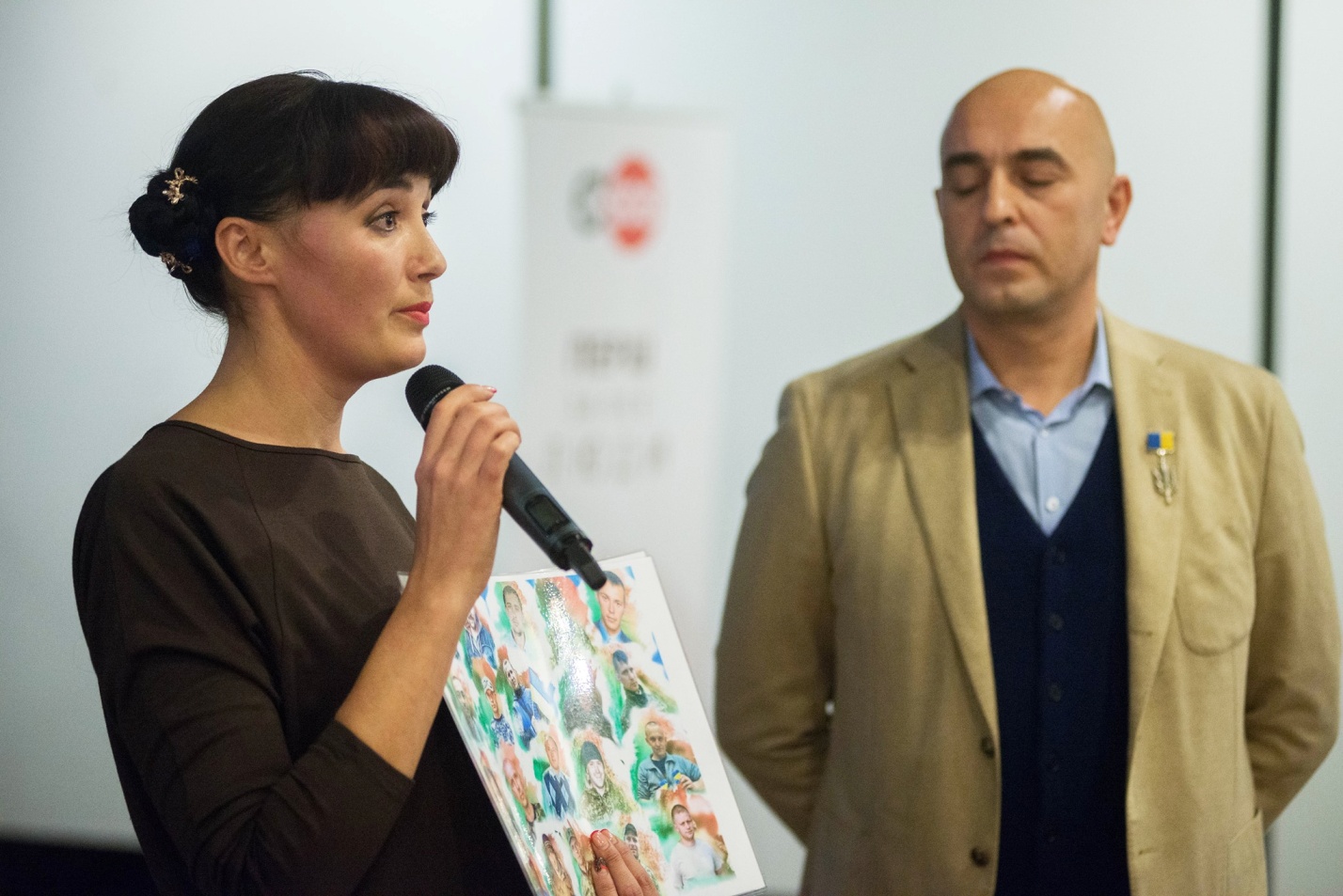
For some, volunteering means doing anything to free your loved ones from captivity. After her brother was imprisoned in the 2014 battle of Debaltseve, Liudmyla Hlondar has dedicated herself to the campaign to free Ukrainian POWs kept captive in the “LNR” and “DNR,” who for more than 600 days they are on the brink of life and death. She organizing the family members of the other prisoners to and has become their spokeswoman. More than anything, Liudmyla said at the award, the campaign needs support: joining demonstrations, initiatives, requests.
There are at least 109 POWs imprisoned in the Russian-backed separatist “republics.” Despite the exchange of hostages on the “everyone for everyone” basis being part of the Minsk agreements, it is going slowly and many Ukrainians have basically become hostages, as the Russian side insists their release be postponed until the implementation of the political clauses of the Minsk agreements.
Read more: Ukrainian hostages in the “LNR” and “DNR: The price of life
For the self-sacrifice that saves lives
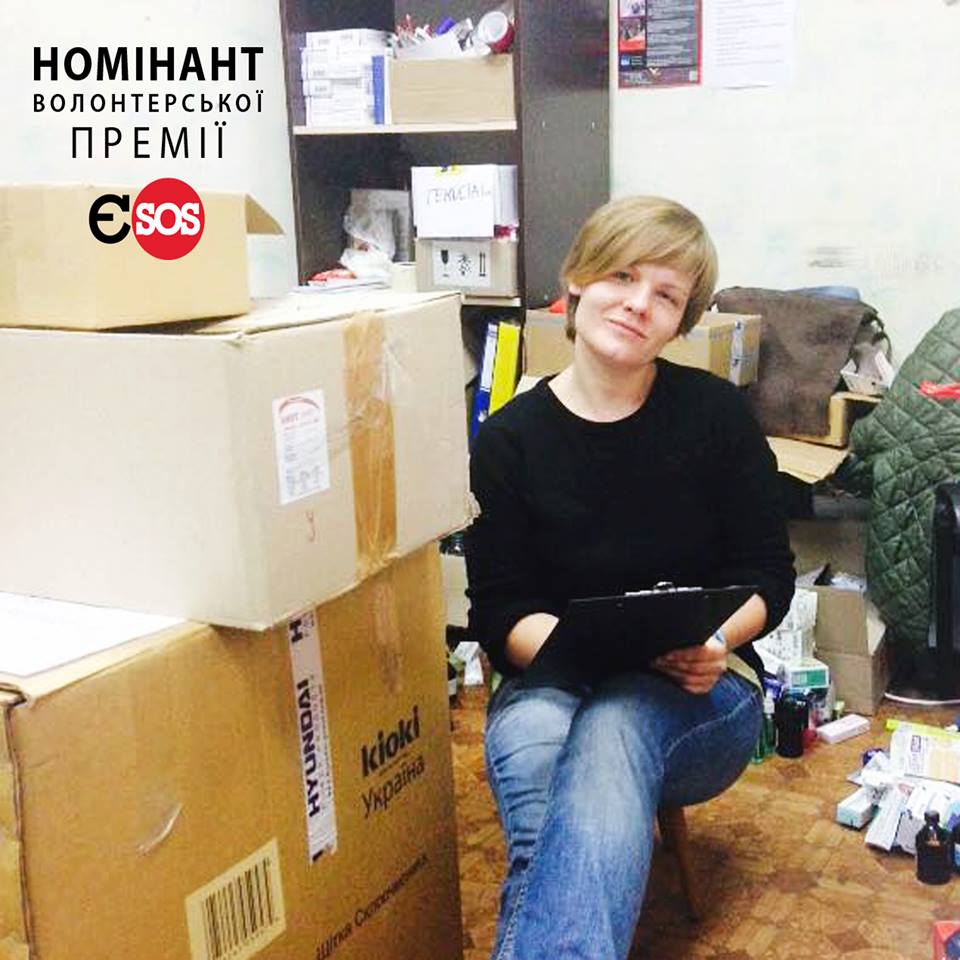
Many volunteering efforts fall apart. It takes an efficient manager to create a long-running project. Iryna Huk from Narodnyi Tyl [“The Home Front’], a group that has the back of the soldiers that have Ukraine’s back, managed to create an efficient system that will last for long. Iryna works on the projects “Medicine of the Home Front” and “Children of the Home Front.” Medicine of the Home Front procures and sends first aid kits to the soldiers front, as well as materials for military doctors and medicine for the hospitals at the frontline. Thanks to Iryna, the sanitary instructors of the Ukrainian army have equipped medical backpacks and intensive care ambulances have medical equipment. She also organizes aid for children of the killed soldiers.
“Iryna does not believe in ceremonies and did not come to the ceremony, being true to herself to the end. The importance of what she is doing cannot be overstated, and I hope that the government takes over its functions, and she can dedicate her energy to what pleases her,” said Yevheniya Zakrevska, last years’ winner of the Euromaidan SOS volunteer awards, when announcing the nomination.
Read more about Narodnyi Tyl: Verified ways to help Ukraine
When $5 are worth a million
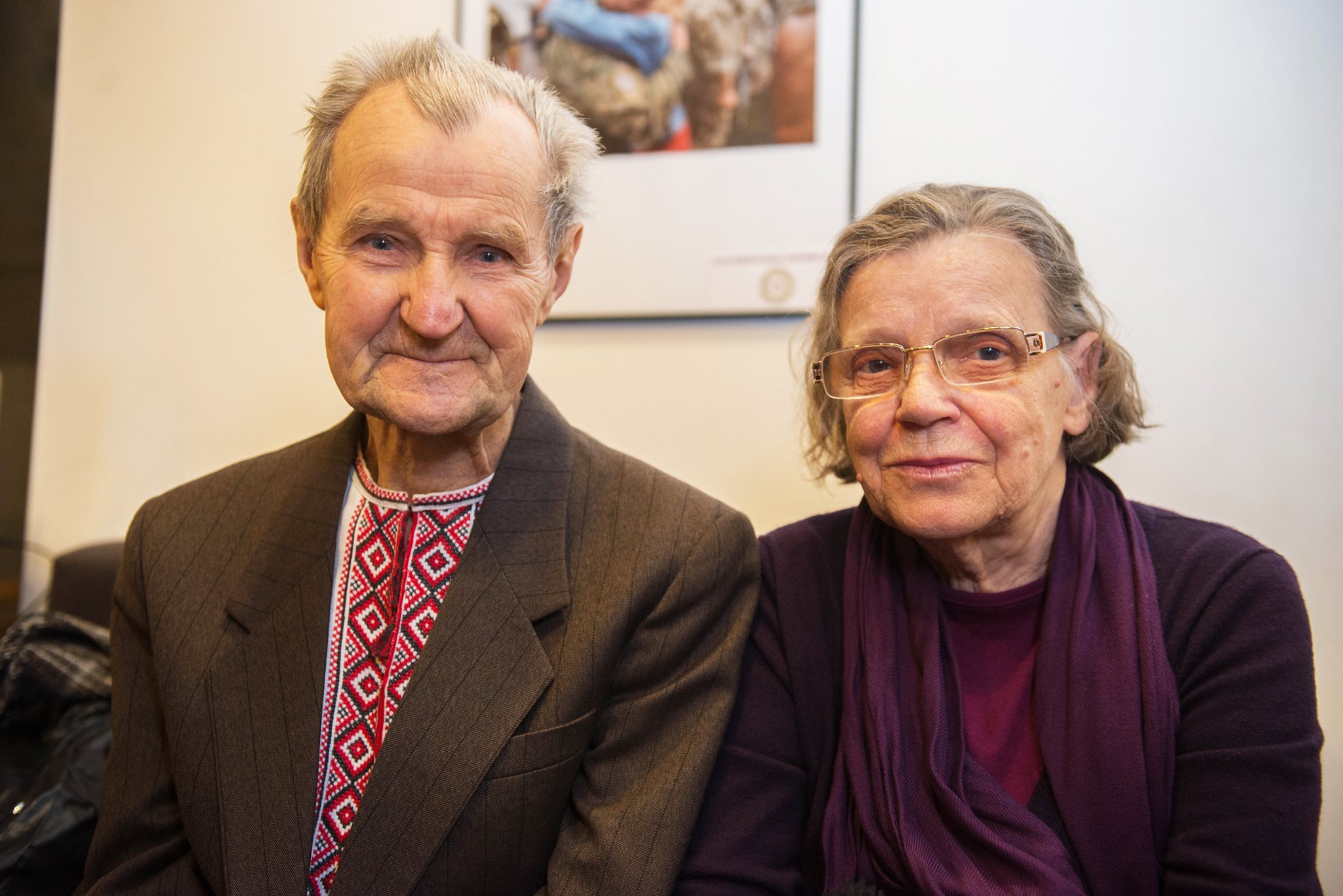
Anybody can be a volunteer – proven by 80-year old Askold Naumets (pictured with his wife), who each month for three years in a row comes to bring a UAH 100 ($5) donation from his pension to a famous volunteer center in Kyiv [the average pension in Ukraine is UAH 1900 ($75), barely enough to cover food – Ed]. For him, this is a lot of money, but the cause is fundamentally important. Even though he is becoming tired in the last year and is lsing his eyesight, he comes in any weather and helps in any way he can.
“All his life now is in the participation in the life of the country. We think it’s important to notice extraordinary people around us,” the organizers of the award noted.
The organizers of the Awards stress that their goal is not to establish who is the best, but to give support and recognition to the many volunteers that show “what it means to have a truly big heart.” Each person that was nominated received a symbolic award.
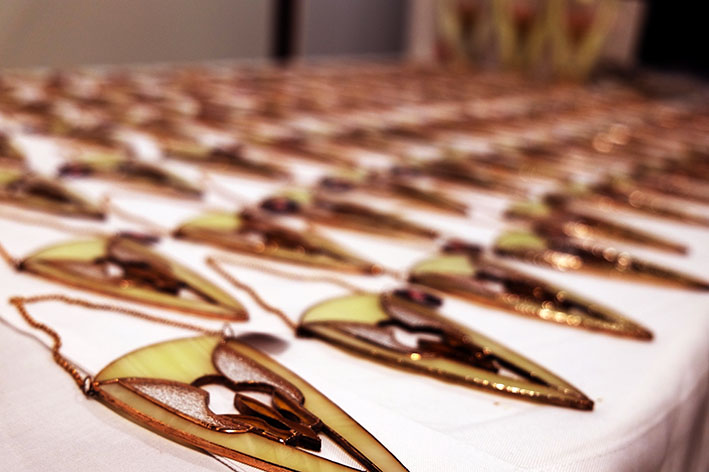
War still most pressing issue
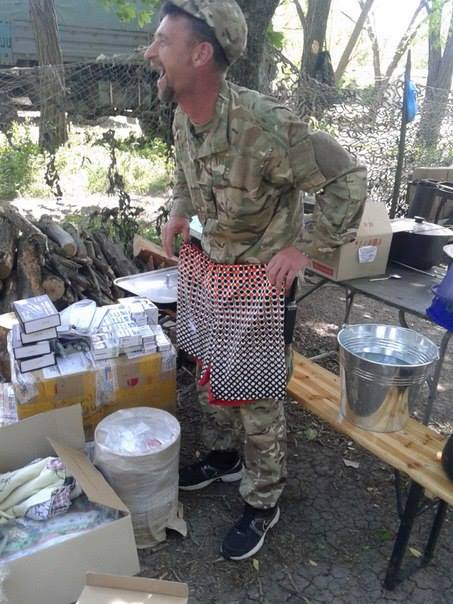
As Russia’s hybrid war in Donbas still remains Ukraine’s most pressing issue, war-related activities are still the main direction for volunteering this year, from efforts to procure sophisticated military equipment to initiatives like the “Women’s sotnia,” which makes camouflage nets for the frontline, or “Combat seamstresses,” which sew colorful (and spirit-lifting) underwear for soldiers at the front.
Still, as the government albeit slowly, but takes over some of the procurement problems, mental and physical rehabilitation of soldiers and civilians who suffered from the war becomes a prominent topic.
“Art therapy is increasingly more popular for these means, and the programs are becoming more complex and systematic,” told Anastasiya Chernoshtan, an organizer of the Awards.
Help also come from abroad – one of those nominated for this years’ award is Ivica Pirić, a retired football player from Croatia that organized the rehabilitation of 900 Ukrainian children and soldiers in his home country. A persona non grata in Russia, he is now the honorary consul of Croatia in Ukraine. “Croatia has lived through everything that Ukraine is going through now. I understand the horror very well,” he explained his interest at the ceremony.
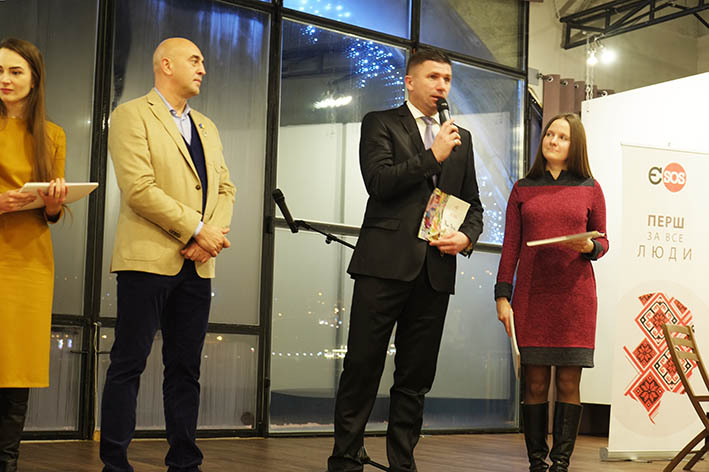
Some of the stories of the volunteers are fit for a film scenario.
“The story of Halyna Almazova impressed me the most,” Anastasiya told. “She was a professional racer, competing to be the first to drive to the finish line. She went to the front and became a paramedic, now also competing for speed by driving the wounded to hospitals. Her reward now is not an abstract prize, but a saved life. Or a woman that sold her valuables to go to the conflict zone. She received a list of items that needed to be procured for the soldiers of a battalion, and couldn’t gather the necessary funds, so she sold her own precious items.”
Many initiatives from Euromaidan grew into full-fledged funds, like the well-known Diana Makarova fund, of NGOs – like Crimea SOS which started as a volunteer initiative and now is a human rights organization working to adapt Crimean refugees and help the Crimean diaspora and political prisoners. Euromaidan SOS itself also such an example, which now deals with a wide specter of human rights issues, such as the LetMyPeopleGo campaign, which advocates for the return of Ukrainians illegally imprisoned in Russia on political motives.
Volunteer stories are inspiring, but provoke the question: the second year into the war, are volunteers doing the work that the Ukrainian government is supposed to be doing?
In an interview to Radio Svoboda, Nataliya Voronkova, herself a volunteer and advisor to Ukraine’s deputy Defense Minister, said that there shouldn’t be any problems with food, fatigues, or medicine. But the Ministry still does not procure specific equipment, such as infrared visors and noise-cancelling heandpones, which prevent hearing loss of artillery soldiers by muffling sounds from gunfire. This can save lives, beause the soldiers hear their enemy at the front. There can never be too much of small goodies like candies and spices, antiviral drugs, as well as children’s hand-made drawings and letters. As well, the vehicles that volunteers purchased for the army need to be maintained by volunteer efforts: they are still not on the balance sheet of any Ministry.
“The state is catching up, but not fast enough. Volunteers work better than the state. They care about the people they are helping, and that makes their activities more effective,” Anastasiya Chernoshtan suggested.
Perhaps that is why volunteers are the most trusted category of Ukrainians. According to a poll conducted by the Razumkov Center in May 2016, 63.7% of Ukrainians trust volunteers (the army, church, and NGOs got, respectively, 61.8%, 60.5%, and 46.8%). Meanwhile, the local governments had a trust rating of 37.5% and the President – only 24.3%.
“We are all responsible for what is happening in the country. That is why we are all doing what we are doing for three years in a row. If we stop, it will all stop,” Oksana Voropai, who volunteers with rehabilitating soldiers, told at the ceremony.




